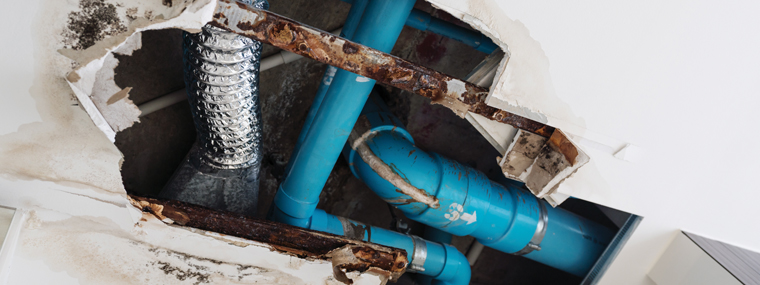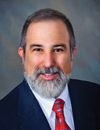
Water and Water’s Impact on Communities
By Michael Gelfand, Esq. / Published July 2018

Though the legislative session is over, there is still plenty of legal news in Florida. Heading into “rainy season” and vacation time, water and water’s impact on communities sets the theme for this column.
Drip, Drip, Drip: Is Leaking Pipe Water Damage Covered by Insurance?
When does disaster strike? Rarely when you are at home. Absence seems the norm in many South Florida communities where residents vacate their homes for long periods, either “going back up North” during the summer months, taking extended vacations, or just enjoying a long weekend away.
While away, that is when that little leak starts. Not easily detected, from a tiny hole or small crack, a water pipe leaks water that spreads fast and far. Will the damage caused by all that leaking water be covered by insurance? It may depend on when the damage from the leaking occurred and a policy’s “fine print.”
In a recent decision of importance to Florida property owners and community associations, a Florida appellate court ruled that an exclusion in a homeowner’s policy for damage caused by constant or repeated leakage of water for 14 days or more did not exclude coverage for damage caused during the first 13 days that water was leaking. In Hicks v. American Integrity Insurance Company, 43 Fla. L. Weekly D 446 (Fla. 5th DCA, February 23, 2018), the facts indicate that while the owner was out of town, the water supply line to his refrigerator began leaking. Almost 1,000 gallons of water was being discharged each day of the five weeks the owner was away.
The owner filed a claim with his insurer. The insurer denied the claim based on a policy exclusion. The policy excluded coverage for damage resulting from constant or repeated seepage or leakage of water over a period of 14 or more days. The owner sued the insurer for breach of contract. The trial court gran-ted summary judgment for the insurer based on the exclusion.
The Florida appellate court re-examined the insurance policy terms and reversed and remanded the case for judgment to be entered in favor of the owner. Reading the policy literally, the pol-icy excluded damages caused by constant or repeated leakage of water “over a period of 14 days.” However, the court held that the policy exclusion did not apply to the losses occurring during the first 13 days. The court stated:
In light of the general principle that insurance policy provisions susceptible to more than one interpretation should be construed liberally in favor of the insured and strictly against an insurer, and that exclusionary clauses should be read even more narrowly, we hold that an insurance policy excluding losses caused by constant or repeated leakage or seepage over a period of fourteen days or more does not unambiguously exclude losses caused by leakage or seepage over a period of thirteen days or less.
The court ruled that the owner was entitled to summary judgment on the issue of coverage within the first 13 days of the leak.
This case shows the importance of two practical lessons for not only owners but also associations. First, operationally it is usually wise to check for water leaks periodically, especially when units and properties are vacant, particularly during the summer months. Second, a denial of coverage by an insurer is not necessarily the end of the process. Frequently, it makes sense to re-examine a policy’s terms from another perspective.
As we have arrived at summer when many properties are vacant, it makes sense to review rules and policies to determine whether counsel should draft updates to address owner duties when a home is vacant, and to confirm the status of coverage with your insurance agent.
When Is Water Damage Caused by an Old Leaking Roof Covered by Insurance?
Another Florida appellate court was faced with yet another issue involving water damage. Again, the court ruled that the trial court erred in granting judgment for the insurer. As the claim involved allegations of an old roof, this decision will be of interest to many.
The facts in Garcia v. First Community Insurance Company, 43 Fla. L. Weekly D 671 (Fla. 3rd DCA, March 28, 2018), indicate that the owner made a claim with his insurer after discovering water damage allegedly due to a roof leak. After the in-surer denied the claim, the owner sued the insurer for breach of contract.
The insurer claimed that the damage was caused by the “age and wear and tear of the roof,” which was excluded from coverage. The owner filed an engineer’s report which concluded that the damages were caused by high rain and/or wind, unconnected to the age of the roof. The trial court sided with the insurer’s experts and entered summary judgment for the insurer.
The Florida appellate court reversed the judgment in favor of the insurer. The court concluded that summary judgment was improper where the reports of the parties’ experts differed as to the cause of the loss. The insurer maintained that the loss was caused by wear and tear of the roof and in direct contradiction, the owner maintained that the loss was caused by high winds causing an opening in the roof. The case was remanded back to the trial court because the question of what caused the loss was a question for a jury to determine.
Those who are responsible for roofs, many property owners and associations, should take heed of the seemingly increased efforts of insurers to deny roof-related damage claims because of pre-existing conditions. This decision shows that insurer’s decisions to deny may be too fast, and just because a roof is old or not in the best condition is not necessarily a valid reason for denying coverage. Nevertheless, this decision is not to be taken as a free pass to ignore maintenance while proverbially praying for a storm so that insurance pays for a new roof! Insurers may be digging through records to see what was and what was not done to maintain roofs!
Michael J. Gelfand, Esq.
Senior Partner of Gelfand & Arpe, P.A.
Michael J. Gelfand, Esq., the Senior Partner of Gelfand & Arpe, P.A., emphasizes a community association law practice, counseling associations and owners how to set legitimate goals and effectively achieve those goals. Gelfand is a Florida Bar Board-Certified Real Estate Lawyer, Certified Circuit and County Civil Court Mediator, Homeowners Association Mediator, an Arbitrator, and Parliamentarian. He is a past Chair of the Real Property Division of the Florida Bar’s Real Property, Probate & Trust Law Section, and a Fellow of the American College of Real Estate Lawyers. Contact him at ga@gelfandarpe.com or (561) 655-6224.


